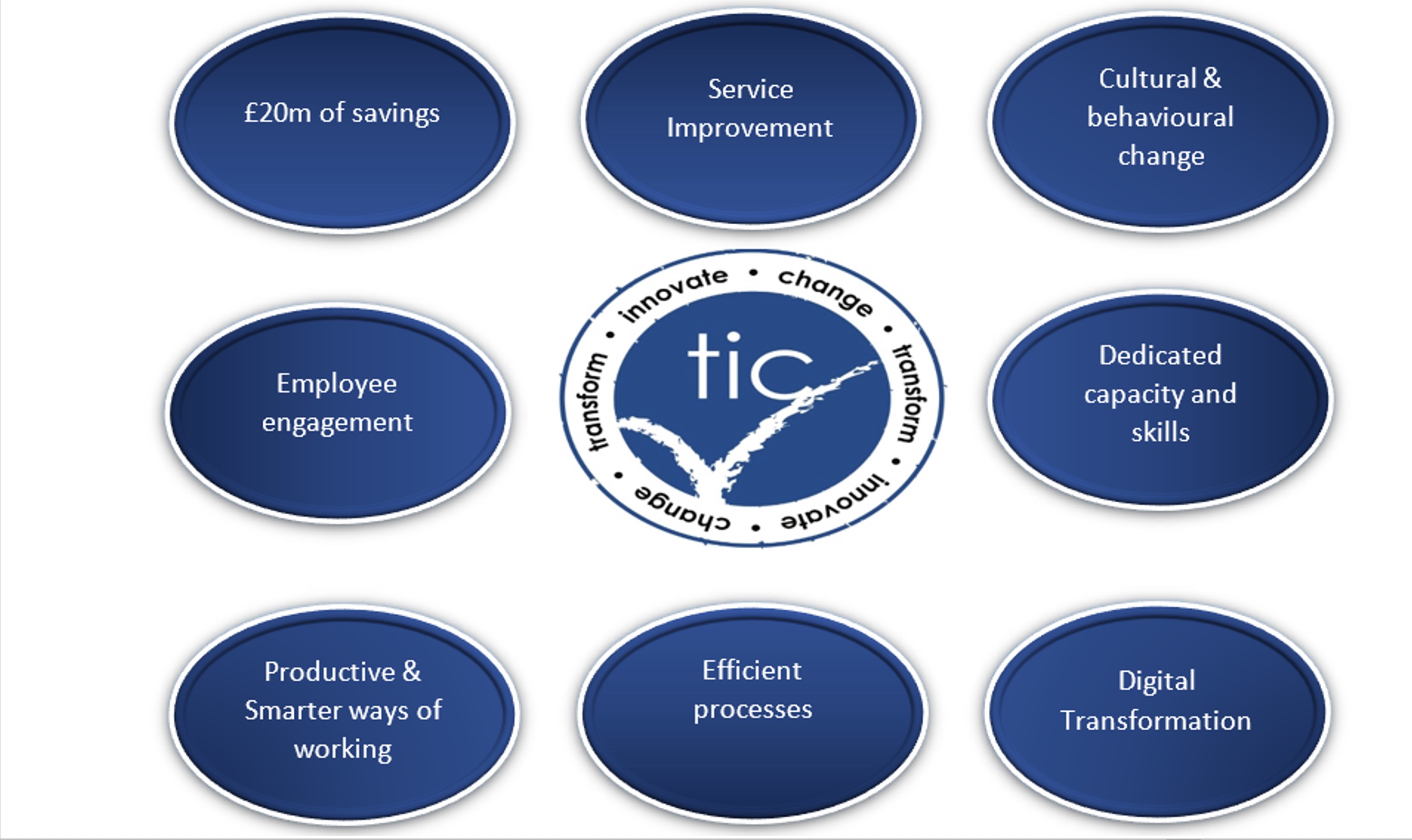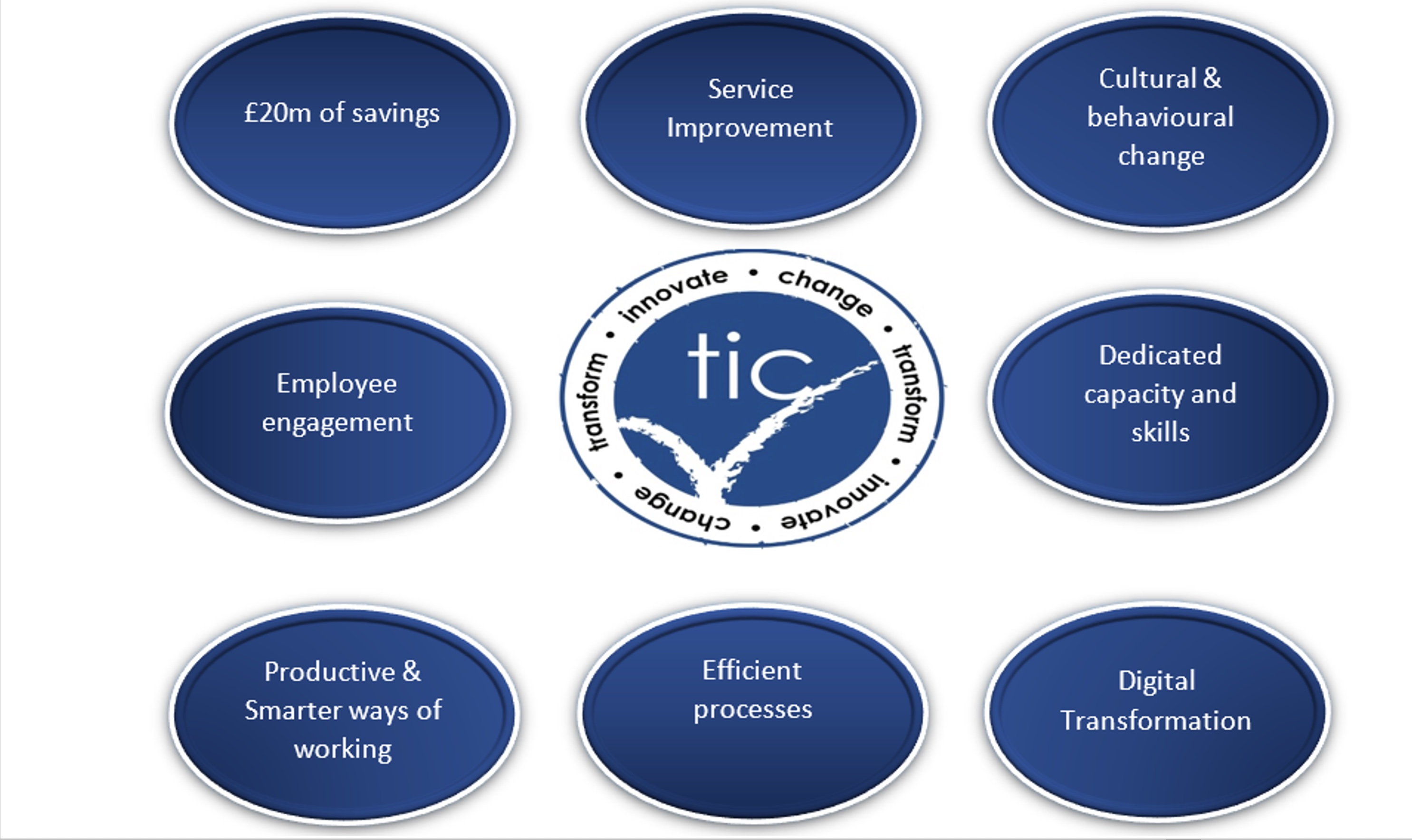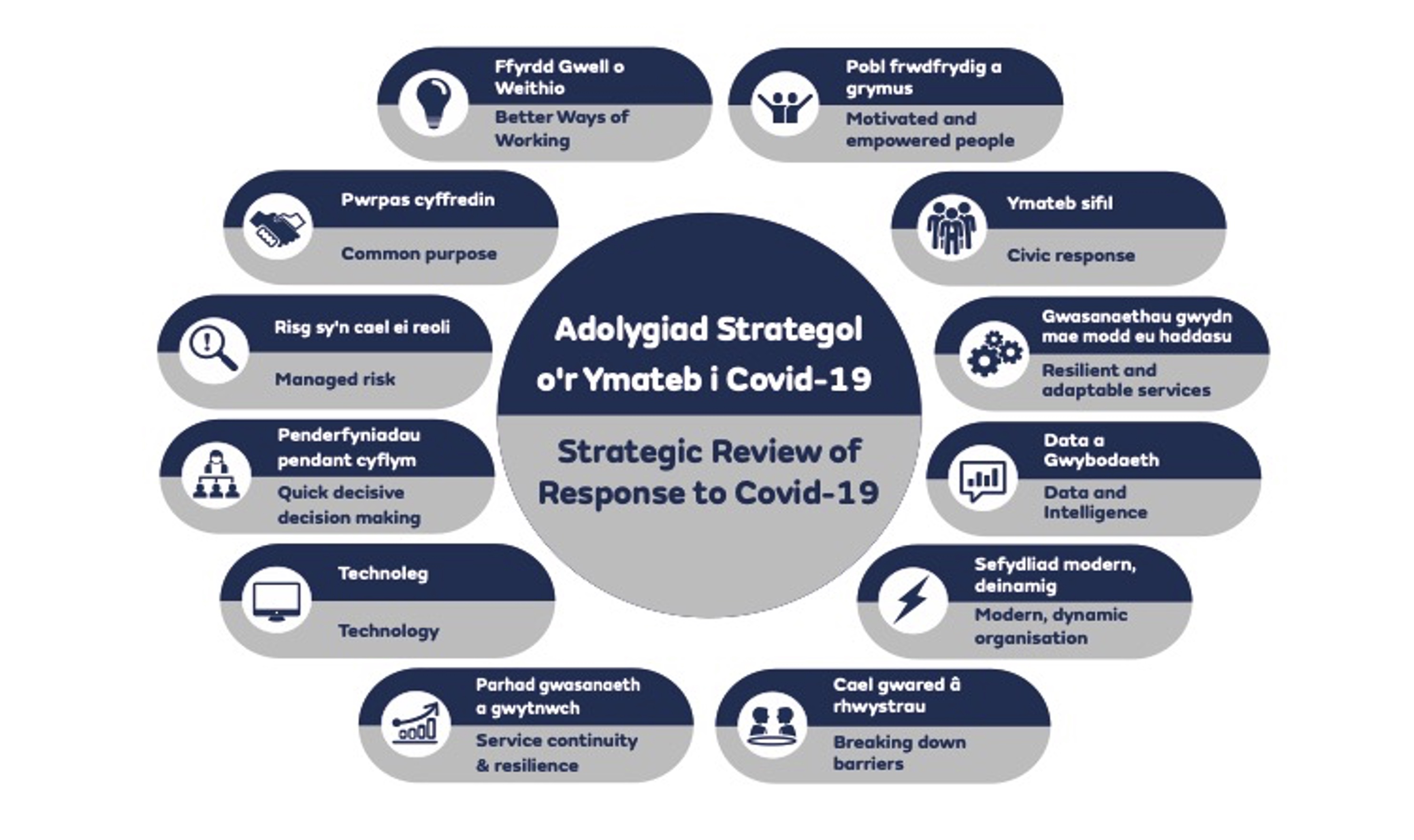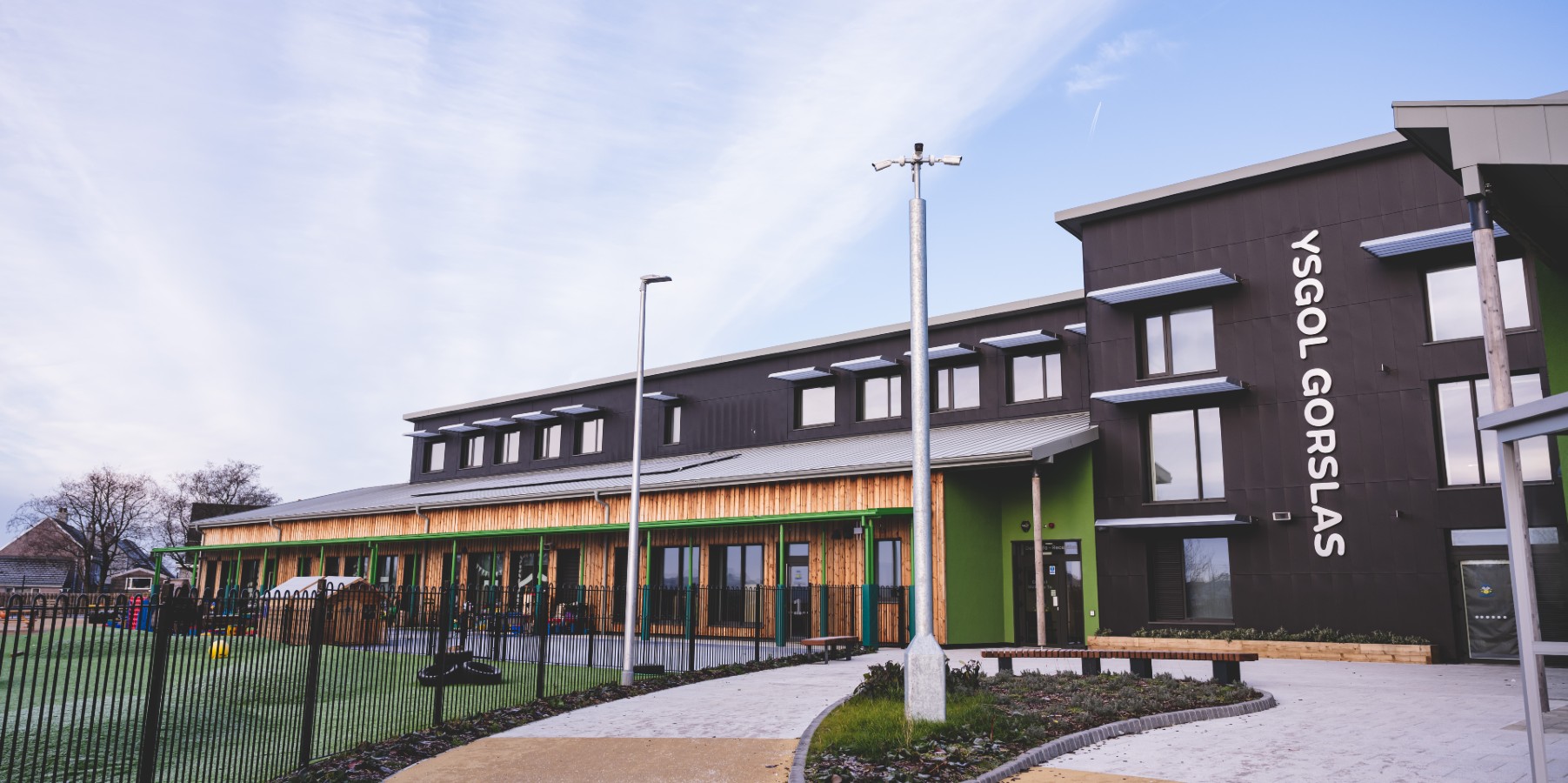
Carmarthenshire Transformation Strategy
Council launches new Transformation programme
Carmarthenshire County Council has launched its Transformation Programme which will change the way the authority uses many of its resources to be able to continue to provide high quality services.
The ambitious programme, which builds on the transformation work already undertaken by the authority over the last 10 years.
The programme will outline how the authority plans to move forward to provide more value and benefits to residents and businesses in the county and will also aim to further accelerate the process of modernisation across the council, allowing it to deliver high quality, cost-effective services in a challenging environment.
Over the next five years, the programme will further invest in the authority’s staff, buildings and technology to create more modern working practices and speed up process.
The Transformation Programme will feed into the council’s new Corporate Strategy - the council’s vision for the next five years under the new administration - which was also today ratified by Cabinet Members. The Corporate Strategy will now go to Full Council for final approval on March 1, 2023.

Council launches new Transformation programme
Carmarthenshire County Council has launched its Transformation Programme which will change the way the authority uses many of its resources to be able to continue to provide high quality services.
The ambitious programme, which builds on the transformation work already undertaken by the authority over the last 10 years.
The programme will outline how the authority plans to move forward to provide more value and benefits to residents and businesses in the county and will also aim to further accelerate the process of modernisation across the council, allowing it to deliver high quality, cost-effective services in a challenging environment.
Over the next five years, the programme will further invest in the authority’s staff, buildings and technology to create more modern working practices and speed up process.
The Transformation Programme will feed into the council’s new Corporate Strategy - the council’s vision for the next five years under the new administration - which was also today ratified by Cabinet Members. The Corporate Strategy will now go to Full Council for final approval on March 1, 2023.
Purpose of Transformation Strategy
The main aim of the Transformation Strategy is to provide a strategic framework to underpin a programme of significant organisational change that will support the Council in achieving its wider aims and objectives as set out within its Corporate Strategy.
The Transformation Strategy will set out goals and objectives to help achieve a specific vision.
The Strategy will aim to outline how the organisation intends to improve its capabilities and the way that it uses its resources to provide more value and benefits to its customers and residents.
It will aim to further accelerate the process of modernisation across the Council, and allow us to continue to deliver high quality, cost-effective services within the context of a challenging external environment.
The Strategy will aim to encourage an inclusive and integrated approach to transformation that makes best use of its people, systems, and processes. It will aim to provide a business case to further invest in our staff, buildings, and technology and to encourage the adoption of modern working practices and speed up processes. It will also aim to develop the skills, culture and behaviours required to make change possible.
It will aim to set out the approach that will underpin the implementation of a Transformation Programme, which will include a greater focus on ‘delivery’ and generating pace and energy to deliver the type of change that is required.
Transformation should be regarded as an on-going process, and therefore this will be a dynamic Strategy which will require review and updating on an annual basis.
Transformation – Our journey to date
The Council’s TIC Programme has been the one of the main vehicles for supporting change and transformation across the organisation during the last 10 years The main aim of the programme has been to support the delivery of a sustainable approach to transforming the organisation; an approach that would allow the Council to meet its financial savings targets, whilst also protecting the standards and quality of front-line services.
The Programme has successfully delivered on these objectives and has helped in the development of more modern and resilient working practices.

The Council’s response to the Covid-19 pandemic – unplanned transformation
In March 2020, Carmarthenshire County Council was about to enter one of the most challenging periods ever faced by local government. The impact of the worldwide Covid-19 pandemic presented a unique set of challenges for the whole country, and there was an acceptance that Councils would need to be at the heart of the local response to the crisis.
The emergence of the Covid crisis meant that services had to adapt quickly to put in place alternative delivery arrangements for users and staff to ensure continuity of provision.
The Council was keen therefore to capture the learning from its response to the pandemic – to understand what worked well and didn’t work so well, and how this could potentially change ‘what we do’ and ‘how we do’, it in the future.


Purpose of Transformation Strategy
The main aim of the Transformation Strategy is to provide a strategic framework to underpin a programme of significant organisational change that will support the Council in achieving its wider aims and objectives as set out within its Corporate Strategy.
The Transformation Strategy will set out goals and objectives to help achieve a specific vision.
The Strategy will aim to outline how the organisation intends to improve its capabilities and the way that it uses its resources to provide more value and benefits to its customers and residents.
It will aim to further accelerate the process of modernisation across the Council, and allow us to continue to deliver high quality, cost-effective services within the context of a challenging external environment.
The Strategy will aim to encourage an inclusive and integrated approach to transformation that makes best use of its people, systems, and processes. It will aim to provide a business case to further invest in our staff, buildings, and technology and to encourage the adoption of modern working practices and speed up processes. It will also aim to develop the skills, culture and behaviours required to make change possible.
It will aim to set out the approach that will underpin the implementation of a Transformation Programme, which will include a greater focus on ‘delivery’ and generating pace and energy to deliver the type of change that is required.
Transformation should be regarded as an on-going process, and therefore this will be a dynamic Strategy which will require review and updating on an annual basis.
Transformation – Our journey to date
The Council’s TIC Programme has been the one of the main vehicles for supporting change and transformation across the organisation during the last 10 years The main aim of the programme has been to support the delivery of a sustainable approach to transforming the organisation; an approach that would allow the Council to meet its financial savings targets, whilst also protecting the standards and quality of front-line services.
The Programme has successfully delivered on these objectives and has helped in the development of more modern and resilient working practices.

The Council’s response to the Covid-19 pandemic – unplanned transformation
In March 2020, Carmarthenshire County Council was about to enter one of the most challenging periods ever faced by local government. The impact of the worldwide Covid-19 pandemic presented a unique set of challenges for the whole country, and there was an acceptance that Councils would need to be at the heart of the local response to the crisis.
The emergence of the Covid crisis meant that services had to adapt quickly to put in place alternative delivery arrangements for users and staff to ensure continuity of provision.
The Council was keen therefore to capture the learning from its response to the pandemic – to understand what worked well and didn’t work so well, and how this could potentially change ‘what we do’ and ‘how we do’, it in the future.

Transformation – Our Vision
‘To deliver substantial and rapid internal change over a 5-year period which will allow the Council to successfully deliver its aims and objectives as set out within its Corporate Strategy.’
The Programme will aim to drive significant change and innovation throughout the Council and help us provide the very best outcomes with the resources available.
It will aim to allow the Council to:
- Be a modern, innovative, and dynamic organisation.
- Achieve a sustainable financial future.
- Develop a skilled and flexible workforce and become an ‘Employer of Choice’.
- Deliver more purposeful, high-quality services to meet customer needs at reduced cost to the Council.
Key Objectives
- To support in the development of a financially sustainable Council, which can deliver high quality, value for money services.
- To identify and help deliver financial savings through efficiencies or cost reductions.
- To develop a more commercial approach to the delivery of Council services with the aim of increasing income generation opportunities.
- To implement a service improvement programme that ensures that the Council can deliver high performing services with the highest standards of customer care.
- To support on the remodelling of services to deliver modern, flexible, and dynamic services designed around the needs of the customer/end user.
- To become a more creative and innovative organisation.
- To work in collaboration with stakeholders and end users to identify the most appropriate way of delivering services
- To continue to develop an agile, well trained, flexible and empowered workforce, committed to delivering high quality services with the highest standards of customer care.
- To make further use of technology in support of the Council becoming a more modern, dynamic organisation.
- To act as an intelligent Council by making effective use of data to manage and improve performance, and to effectively manage demands through prevention and early intervention.
- To provide an opportunity to share and recognise good practice across the organisation.
- To identify where additional capacity and/ or resources may be required to support the process of change and transformation.
- To make effective use of communications, staff engagement and Learning and Development programmes to help create the necessary culture and behavioural change.
Proposed outcomes from the Transformation Programme:
- Improvements in service quality and value for money
- More cost-efficient services
- Purposeful, responsive, customer focussed services
- A highly trained, flexible workforce
- A more engaged, motivated workforce
- Further development of a learning and ‘can do’ culture
- The best standards of customer care
- Delivery of financial savings
- Environmental savings and benefits
- Increases in the level of income generated
- Modern and efficient work processes

Transformation – Our Vision
‘To deliver substantial and rapid internal change over a 5-year period which will allow the Council to successfully deliver its aims and objectives as set out within its Corporate Strategy.’
The Programme will aim to drive significant change and innovation throughout the Council and help us provide the very best outcomes with the resources available.
It will aim to allow the Council to:
- Be a modern, innovative, and dynamic organisation.
- Achieve a sustainable financial future.
- Develop a skilled and flexible workforce and become an ‘Employer of Choice’.
- Deliver more purposeful, high-quality services to meet customer needs at reduced cost to the Council.
Key Objectives
- To support in the development of a financially sustainable Council, which can deliver high quality, value for money services.
- To identify and help deliver financial savings through efficiencies or cost reductions.
- To develop a more commercial approach to the delivery of Council services with the aim of increasing income generation opportunities.
- To implement a service improvement programme that ensures that the Council can deliver high performing services with the highest standards of customer care.
- To support on the remodelling of services to deliver modern, flexible, and dynamic services designed around the needs of the customer/end user.
- To become a more creative and innovative organisation.
- To work in collaboration with stakeholders and end users to identify the most appropriate way of delivering services
- To continue to develop an agile, well trained, flexible and empowered workforce, committed to delivering high quality services with the highest standards of customer care.
- To make further use of technology in support of the Council becoming a more modern, dynamic organisation.
- To act as an intelligent Council by making effective use of data to manage and improve performance, and to effectively manage demands through prevention and early intervention.
- To provide an opportunity to share and recognise good practice across the organisation.
- To identify where additional capacity and/ or resources may be required to support the process of change and transformation.
- To make effective use of communications, staff engagement and Learning and Development programmes to help create the necessary culture and behavioural change.
Proposed outcomes from the Transformation Programme:
- Improvements in service quality and value for money
- More cost-efficient services
- Purposeful, responsive, customer focussed services
- A highly trained, flexible workforce
- A more engaged, motivated workforce
- Further development of a learning and ‘can do’ culture
- The best standards of customer care
- Delivery of financial savings
- Environmental savings and benefits
- Increases in the level of income generated
- Modern and efficient work processes
Our Transformation Priorities
It is proposed that the Programme will focus on supporting the delivery of the following thematic priorities:
To continue to deliver financial savings through efficiencies or cost reductions and smarter ways of working.
To develop a more commercial approach to the delivery of Council services with a view to increasing the level of income generated.
To exploit the opportunities presented by a move to hybrid working and to further rationalise the Council’s accommodation portfolio and modernise and improve the working environment within the remaining core buildings.
To oversee the development of a Workforce Strategy and delivery of key workforce priorities to enable the Council to become a more modern and responsive organisation and an ‘Employer of Choice’.
To provide for a more sustainable and creative approach to the review, remodelling and improvement of Council services.
To continue to make better use of technology to deliver smarter, efficient service processes and to deliver a better experience for customers.
To support the Council in delivering transformational change in support of key decarbonisation objectives and targets.
To assist schools in identifying cost reductions and better ways of working, and support the development of more sustainable school budgets and help protect front line academic provision.
Cross-cutting priorities
Each of the workstreams will also be asked to consider the following key cross-cutting themes as part of their work:
-
Customers
How does what we are aiming to achieve meet the needs of our customers?
-
Making Better Use of Resources
Will it deliver a better, more efficient way of working which could result in cost reductions, financial efficiencies or doing more for the same level of inputs?
-
Future Generation and Well-being
How does it support the 5 Ways of Working that underpin the Act?
-
- Long-term
- Integrated
- Involving
- Collaboration
- Prevention
-
Decarbonisation
How does this work help the Council’s NZC objectives?
-
Data
Ensure that all decisions are based on appropriate data and evidence?

Our Transformation Priorities
It is proposed that the Programme will focus on supporting the delivery of the following thematic priorities:
To continue to deliver financial savings through efficiencies or cost reductions and smarter ways of working.
To develop a more commercial approach to the delivery of Council services with a view to increasing the level of income generated.
To exploit the opportunities presented by a move to hybrid working and to further rationalise the Council’s accommodation portfolio and modernise and improve the working environment within the remaining core buildings.
To oversee the development of a Workforce Strategy and delivery of key workforce priorities to enable the Council to become a more modern and responsive organisation and an ‘Employer of Choice’.
To provide for a more sustainable and creative approach to the review, remodelling and improvement of Council services.
To continue to make better use of technology to deliver smarter, efficient service processes and to deliver a better experience for customers.
To support the Council in delivering transformational change in support of key decarbonisation objectives and targets.
To assist schools in identifying cost reductions and better ways of working, and support the development of more sustainable school budgets and help protect front line academic provision.
Cross-cutting priorities
Each of the workstreams will also be asked to consider the following key cross-cutting themes as part of their work:
-
Customers
How does what we are aiming to achieve meet the needs of our customers?
-
Making Better Use of Resources
Will it deliver a better, more efficient way of working which could result in cost reductions, financial efficiencies or doing more for the same level of inputs?
-
Future Generation and Well-being
How does it support the 5 Ways of Working that underpin the Act?
-
- Long-term
- Integrated
- Involving
- Collaboration
- Prevention
-
Decarbonisation
How does this work help the Council’s NZC objectives?
-
Data
Ensure that all decisions are based on appropriate data and evidence?
